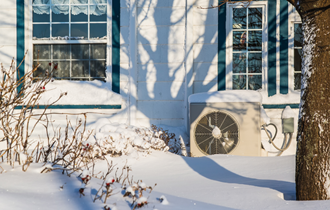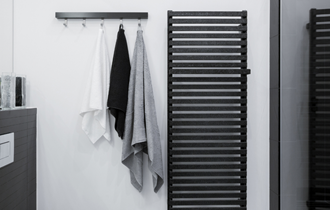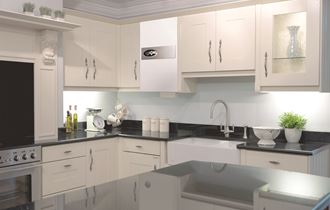Electric heating

Off-Peak Heating systems use the cheapest tariff to run electric heating

-
![]() Heating TariffsThe Superheat tariff is exclusively available for electric boilers, radiators and underfloor heating. Air source heat pumps have a separate tariff and storage heating runs on the Super Economy 12 tariff.
Heating TariffsThe Superheat tariff is exclusively available for electric boilers, radiators and underfloor heating. Air source heat pumps have a separate tariff and storage heating runs on the Super Economy 12 tariff. -
![]() Off-Peak HeatingThe low-cost, low-carbon way to heat your home. New storage heaters feature intelligent controls and superior insulation meaning you can enjoy comfortable heat using cheaper, off-peak electricity.
Off-Peak HeatingThe low-cost, low-carbon way to heat your home. New storage heaters feature intelligent controls and superior insulation meaning you can enjoy comfortable heat using cheaper, off-peak electricity. -
![]() Air source heat pumps300% efficient heat. Electric air source heat pumps are the least expensive way to heat your property and significantly reduce carbon emissions.
Air source heat pumps300% efficient heat. Electric air source heat pumps are the least expensive way to heat your property and significantly reduce carbon emissions. -
![]() Electric Panels & RadiatorsStylish, convenient and no water needed for heating. These provide almost instant heat and can be individually controlled room by room on an app from your phone or on the individual radiator itself.
Electric Panels & RadiatorsStylish, convenient and no water needed for heating. These provide almost instant heat and can be individually controlled room by room on an app from your phone or on the individual radiator itself. -
![]() Underfloor heatingEven warmth underfoot. Underfloor heating always works best on flooring that conducts heat well such as tile, wood, stone, laminate and vinyl.
Underfloor heatingEven warmth underfoot. Underfloor heating always works best on flooring that conducts heat well such as tile, wood, stone, laminate and vinyl. -
![]() Water heatingClean, reliable hot water. Electric cylinders can be used as your property’s main water heater and can be installed with a timer to take advantage of the Super Economy 12 low-rate electricity tariff.
Water heatingClean, reliable hot water. Electric cylinders can be used as your property’s main water heater and can be installed with a timer to take advantage of the Super Economy 12 low-rate electricity tariff. -
![]() Heated towel railsAdd style to your bathroom. Perfect for drying clothes and towels, always have a warm towel ready after your shower or bath.
Heated towel railsAdd style to your bathroom. Perfect for drying clothes and towels, always have a warm towel ready after your shower or bath. -
![]() Electric BoilersPractically 100% efficient. These compact, wall-mounted units can often replace an existing gas or oil boiler and are a popular way to convert to electric.
Electric BoilersPractically 100% efficient. These compact, wall-mounted units can often replace an existing gas or oil boiler and are a popular way to convert to electric.
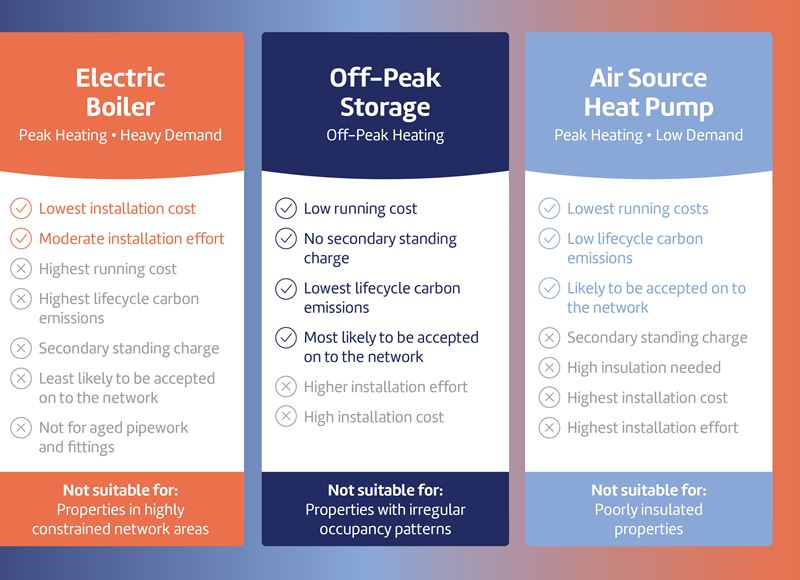
The heating type that's best for you will depend on both your budget, and the type of property you have.
Moving to an electric boiler isn't always the best option for everyone, and the best thing to do is to ask your installer about all the heating options available to you.
- Running costs vary between the different heating options
- Installation requirements will also be different
- Plus, do you want a 'wet' or a 'dry' heating system? Wet needs piping, hot water and plumbing, and dry systems don't.
We offer free home surveys to help answer these questions and find the right option for you and your property
-
Convenience
Say goodbye to fuel deliveries, fuel monitoring, property flues, storage tanks – and multiple energy bills. Power, light and heat your home with cleaner energy delivered straight to your door, on demand, 24/7.
-
Cleaner air
Have you ever noticed an all-electric house has no flue? That’s because it doesn’t produce any waste emissions as 100% of the electricity used to power the system is used to heat the home. That means cleaner air for you and your loved ones to breathe.
-
Cost effective
Like a car engine, a fossil-fuel boiler will cost more to run as it loses efficiency over time. Plus if you’re heating with gas, this is the most expensive way to heat a property and will be costing you a lot more than if you were heating with electric.

Fossil-fuel boilers are never 100% efficient even at new and cost more to run as they age. That means on top of cost-of-living increases, it'll also cost you more to heat the same space year-on-year.

-
Compare Heating Costs
Compare the costs of heating your property with oil, gas or electric against electric or air source heat pump
Compare From
Unit cost (pence per Litre)
Total delivered (Litres per year)
Oil Boiler Age
Unit cost (pence per kWh)
Standing charge (pence per day)
Q1 (kWh)
Q2 (kWh)
Q3 (kWh)
Q4 (kWh)
Units Used
Compare To
Fuel Energy Consumed (kWh) Annual cost Annual carbon emissions {{compFromName}} {{displayNum(energyConsumed)}} £{{displayNum(fromCost)}} {{displayNum(fromEmissions)}} KgCO²e {{compToName}} {{displayNum(toUnits)}} £{{displayNum(toCost)}} {{displayNum(toEmissions)}} KgCO²e You Save £{{displayNum(saveAmount)}} {{displayNum(saveEmissions)}} KgCO²e

Your lifestyle will decide how you need to heat your home. If you have a regular routine, you can set timers for the whole house, or room by room, to ensure the heating is on when you need it.
And if you come and go, use a smartphone app to set your heating remotely and make sure your home is warm according to your schedule.
-
90%around 90% of electricity comes from imported renewable hydro, wind and solar energy
-
70%up to 70% less carbon emissions than oil and gas heating to benefit you and your island
-
0%no greenhouse gas emissions around your property for better air quality
Which tariff is which?
Heating uses different tariffs to help you get the best from your heating system
-
Off-Peak Storage Heating
Super Economy 12 Tariff and NO 'secondary' meter standing charge
-
Hot water
Super Economy 12 Tariff
-
Panel heating
Superheat Tariff plus a 'Secondary' meter standing charge
-
Air source heat pump
Air Source Heat Pump Tariff plus a 'Secondary' meter standing charge
-
Underfloor heating
Superheat Tariff plus a 'Secondary' meter standing charge
-
Electric boilers
Superheat Tariff plus a 'Secondary' meter standing charge
Frequently Asked Questions
Making the switch to electric heating is a fantastic investment for your property. Like any property upgrade, the installation will take time to complete and we want to help answer your questions before you make the decision to change.
Electric boilers, radiators and underfloor heating - Superheat 24 hour tariff.
This tariff was designed exclusively for electric heating and runs at a low-rate 24 hours a day.
Electric heating appliances connected to Superheat must be wired on a separate circuit and connected to a separate distribution board.
Storage heaters - Super Economy 12 tariff.
This refers to 12 hours out of 24 when you can run your heating using low-rate electricity. This is made up of 2 hours during the day and 10 hours at night. Storage heaters work by storing heat generated using low-rate electricity overnight and releasing that heat during the day.
Water heating and towel rails - these are usually on a Super Economy 12 tariff.
It’s essential that you use a timer to ensure you’re only heating hot water during your low-rate Super Economy 12 times.
The best time to heat water is between 11pm and 5am as this takes advantage of both low-rate electricity and uses 100% renewable energy. At night we do not use as much electricity meaning the power station is not required to top up our imported electricity to meet customer demand.
Air source heat pumps - Heat pump tariff.
This is available for a permanently connected heat pump system and all elements of the system including pumps and controls will use this same tariff.
Air source heat pumps using the heat pump tariff must be wired on a separate circuit and connected to a separate distribution board/consumer unit.
As there is so much demand for electric heating at this time, 'additional load' application processing can be quite a few weeks and it is very unlikely you'll get your installations at short notice.
Switching from fossil-fuel to an electric heating system is a similar time investment in your property to that of designing and building an extension and takes time to fully complete.
The most satisfied customers have found planning two years in advance helps manage the various stages required including the additional load application, possible supply line cable upgrades and contractor lead times.
Your installer will need to apply to Guernsey Electricity for additional load prior to installing your new heating system and this assessment may take several weeks to fully complete.
Excluding the current waiting time for additional load application processing, a typical electric heating installation will depend on if you need a new supply line cable upgrade.
- If you already have sufficient capacity on the electricity supply line cable supplying your property, the switch should be fairly straightforward and may take around 21 weeks from initial enquiry to heating your home.
- If your property needs a supply line cable upgrade, the installation may take around 29 weeks.
However each property is different and you should discuss options with your installer as early as possible to make sure you are not in a situation where you're without heating when you need it.
If the supply line cable supplying your property has sufficient capacity, you will not need an upgrade. However to find this out, your installer will need to submit an 'additional load' application.
If you’d like to make the switch to electric heating but are unsure about the upfront cost, you may be able to receive a preferential rate from lenders who offer "green lending".
Your best option would be to get in touch with your preferred lender and enquire about discounted loans based on purchasing an electric heating system as an alternative to gas or oil.
“If you want an economic and more controllable way of heating your home, electricity is the way forward.
I thoroughly recommend it. It is simple to operate, and I feel happier that my individual home is not pumping out fumes into our lovely environment.”


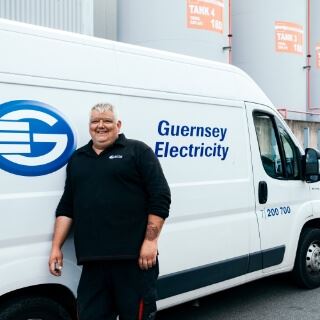
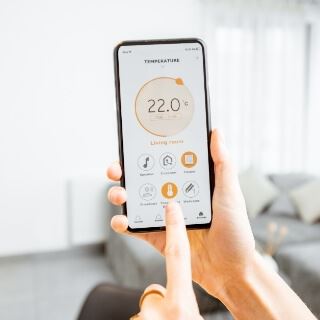
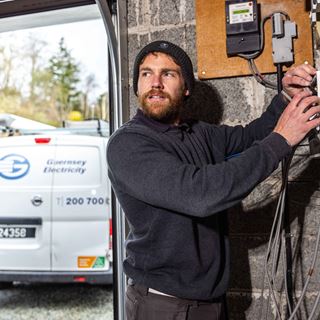

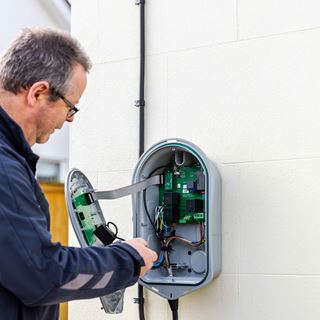

Off-Peak Heating systems use the cheapest tariff to run electric heating










